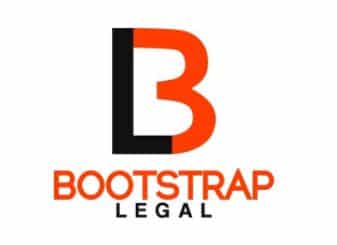WHITE BOARD WORKSHOP
Need More Money to Finance Your Real Estate Projects?
Learn how to find more investors, raise more money, and finance your real estate projects online.
212 Amy Wan, Bootstrap Legal


Crowd Funding Real Estate – Intersection of Money, Morality and Justice
Amy has always been intrigued by the intersection of money, morality and justiceand originally entered the law profession as a human rights attorney. Moving to Los Angeles some years ago, she became general counsel of a fledgling company at the time called 'Patch of Land', which is now one of the leading real estate crowdfunding platforms.
The company was formed at the end of 2013, when the first of the JOBS Act Regulations became effective. The key component of the Act is called Regulation D 506 (c), which allows people to go out and raise capital and tell everyone about it. The legal term is general solicitation, but it is basically advertising. You can raise as much as you want, but only from accredited investors. Patch of Land started doing deals, and at the time Amy joined there were the three founders and one independent contractor.
Amy’s belief in human rights has evolved quite a bit over the last few years and one of the reasons that she joined Patch of Land was because she was looking for something at the intersection of money and morality. The company was democratizing access to capital to a class of people that traditionally struggled to get it. Perhaps they were under-banked, but usually they are fix and flip developers, and banks do not lend to them.
For investors she thought that they were democratizing access to investment opportunities that they had never had before. On a personal level, Amy is aware of being female, Asian and relatively young, and that people did not look at her and think "Oh, there's a real estate investor, let me approach them about the opportunity". The best deals usually go to people in an 'old boys' club' - a certain age, gender and race, and they do not look like Amy.
Leaders of The Crowd
Conversations with Crowdfunding Visionaries and How Real Estate Stole the Show
Discover how laws that gave us crowdfunding were solely meant to finance small companies and yet inadvertently opened the doors to allow you to invest in real estate like never before.
Read the book and listen to the actual conversations.
Seeking Efficiency
Her personality has always been geared towards efficiency, and she sees the legal industry as one of extreme inefficiency. One even incentivized by inefficiency. She believes that if technology can be introduced into the legal industry then access to justice can be increased, transactional cost for business will come down, and a lot of good can be done. Today we are in the nascent stage of how tech will affect the real estate industry and Amy sees processes that are inefficient and that could be streamlined and digitized. She has always looked for ways to do things more efficiently, and being a legal counsel and part of a start-up at Patch of Land gave her a lot of license to reinvent the way practice could be.
How to Fund Your Deals
7 Steps to Raising Equity Online
Crowd Funding Real Estate Platforms
Every real estate crowdfunding platform is different: some are broker dealers, some are sponsors, others are listing aid companies. Some do commercial, some do equity, some do debt. The vast majority of real estate crowdfunding platforms have their ownstandardized forms that they try not to deviate from, because doing so increases the transactional cost. What usually happens is that the lender will negotiate terms with the borrower, who can then accept them or go to another lender. If they accept the terms, they issue a note and fund the loan, and there is very little negotiation.
On the investor side, when the platform is syndicating the debt out to its investor base there is no negotiation. The first part is about real estate and lending laws, and the second is securities law – you are dealing with investors. Under these laws, all investors have to be treated equally.
Some Platforms Pre-fund Deals
Each of the crowdfunding platforms do things differently. Some, like Patch of Land, will prefund the loan, and they usually have a credit facility and they get paid back when they syndicate it out. Others will not refund the loan, but will put the terms out to the borrower and then put it out to their investor base for funding of the loan. It is riskier from the borrower's perspective, because it might not be funded. Sometimes these platforms will decide to make a contribution of capital if a loan is 50% funded, syndicate the debt and then get paid back.
The platforms are not incentivized to invest in bad loans - they want to invest in good ones so that their investors make good returns. When they have their own money in, that says a lot about their confidence in the deal. We are seeing a trend in crowdfunding as a whole, where if a platform performs a lot of due diligence and is able to curate and choose the good opportunities, the investors start to put their trust in the platforms rather than the sponsors.
An important component of the process today is that now we have the internet and everybody on the Internet talks.For example, real estate crowdfunding investors talk about their investments, and if these are not performing, they warn everybody else. News travels fast online, and people talk when they are unhappy.
From a regulatory perspective, what makes this challenge is that you have got a lot of unsophisticated investors looking at a very sophisticated and complex industry - real estate. Then you are adding the tech layer to it. You may have a great platform with fantastic deals, but if the platform fails, that is another layer of risk that you never had before in real estate.
Real Estate Democratized
An emerging trend is the democratization of real estate crowdfunding platforms, so instead of large, venture capital-backed platforms, we are seeing the rise of tiny real estate companies putting out their own platforms. They are not raising money for other people, but are offering investment options on their existing websites. When someone clicks on this, they are taken to a white label site that has already been built, meaning that the cost of technology to build a platform has decreased. That means that real estate developers are now able to move from getting support from their immediate contacts to involving the local community.

Bootstrap Legal
Amy remains focused on economic justice and efficiency. With the cost of legal counsel so high, any wanting to do a small deal meant that hiring an attorney did not make sense for them. Instead, they were downloading random legal documents from Google and trying to draft something useable themselves, which got them into trouble. So much of the USA is powered by small businesses, and they employ a lot of people. And yet there is an injustice when they try to raise capital. They cannot afford to pay for help and when they do it themselves they can structure things incorrectly, which does lasting damage to their business. There are actual cases where start-ups have inadvertently giving away 80% of their company.
Indeed, there is a lot of inefficiency in how law is practiced, and injustice because legal services are priced too high. If we can integrate technology into law, we can bring down the transactional cost of a lot of legal services so more people can afford them, and then grow their businesses and employ people.
Lowering Costs, Speeding Transactions
Starting in the real estate sector, BootStrap Legal is creating software that willautomate highly complex legal documents that people need in order to raise capital. These are the legal documents you need for a real estate syndication, real estate private equity fund or a real estate crowdfunding deal. Traditionally, this would have cost anywhere from $10,000 to $25,000, but with Bootstrap Legal the cost is significantly less.
Amy is not only lowering the cost, but is also speeding up the transaction. If you go to an attorney, you would usually wait two to four weeks for the first draft of your documents, but at Bootstrap they are turning them around in 48 hours. This can give real estate investors more time to raise money.
The process Amy is employing at Bootstrap originally was intended to integrate AI (artificial intelligence), but she has found other creative ways to get to where she wants to be. Amy likes to think of it as 'AI-Lite.' There are a lot of rules and it is an expert system, but the idea is that the user goes in, and answers an adaptive questionnaire. The system asks what type of regulation they are trying to use and who they are raising capital from and the type of real estate. Typical clients are real estate syndicators, investors or sponsors - basically anyone who is trying to raise capital for a real estate project.
Legal Counsel for All
Although Bootstrap has started off with real estate, she has her sights set higher. Amy is primarily focused on changing the user experience around how they interact with legal services which currently centers a lot around the attorney. If it could be centered around the client, everyone would be happier. In particular, moving away from the billable hours system would be better for all. You can make things more efficient by decreasing transactional costs, and clients would be happier. In this way, and through Bootstrap legal, Amy wants to have an impact on creating more jobs and leveling the playing field for all.
RELATED PODCASTS
367 Carlos Vigon, CEO and Founder of PaxCap Investors, LLC
Carlos Vigon, PaxCap Investors Identifying and Investing in Distressed Real Estate The Investor Acquisition System: Find More Investors Raise Money Online Finance Your Projects WHITE BOARD WORKSHOP LEARN MORE Carlos…
READ MORE >307 Brent Hieggelke, CMO CrowdStreet
Last Updated on September 15, 2021 by Dr. Adam Gower WHITE BOARD WORKSHOP Need More Money to Finance Your Real Estate Projects? Learn how to find more investors, raise more…
READ MORE >333 Allie Mills, Digital Marketing Manager at Investor Management Services
Last Updated on September 15, 2021 by Dr. Adam Gower FREE TRAINING What is Real Estate Crowdfunding? Learn how to build wealth and earn passive income in real estate while…
READ MORE >












